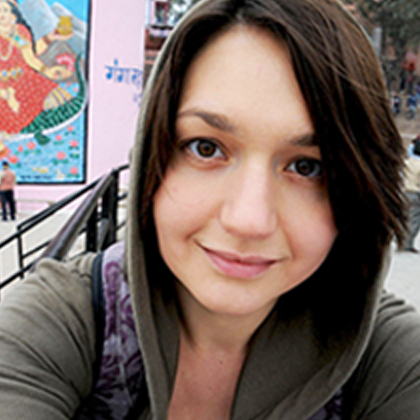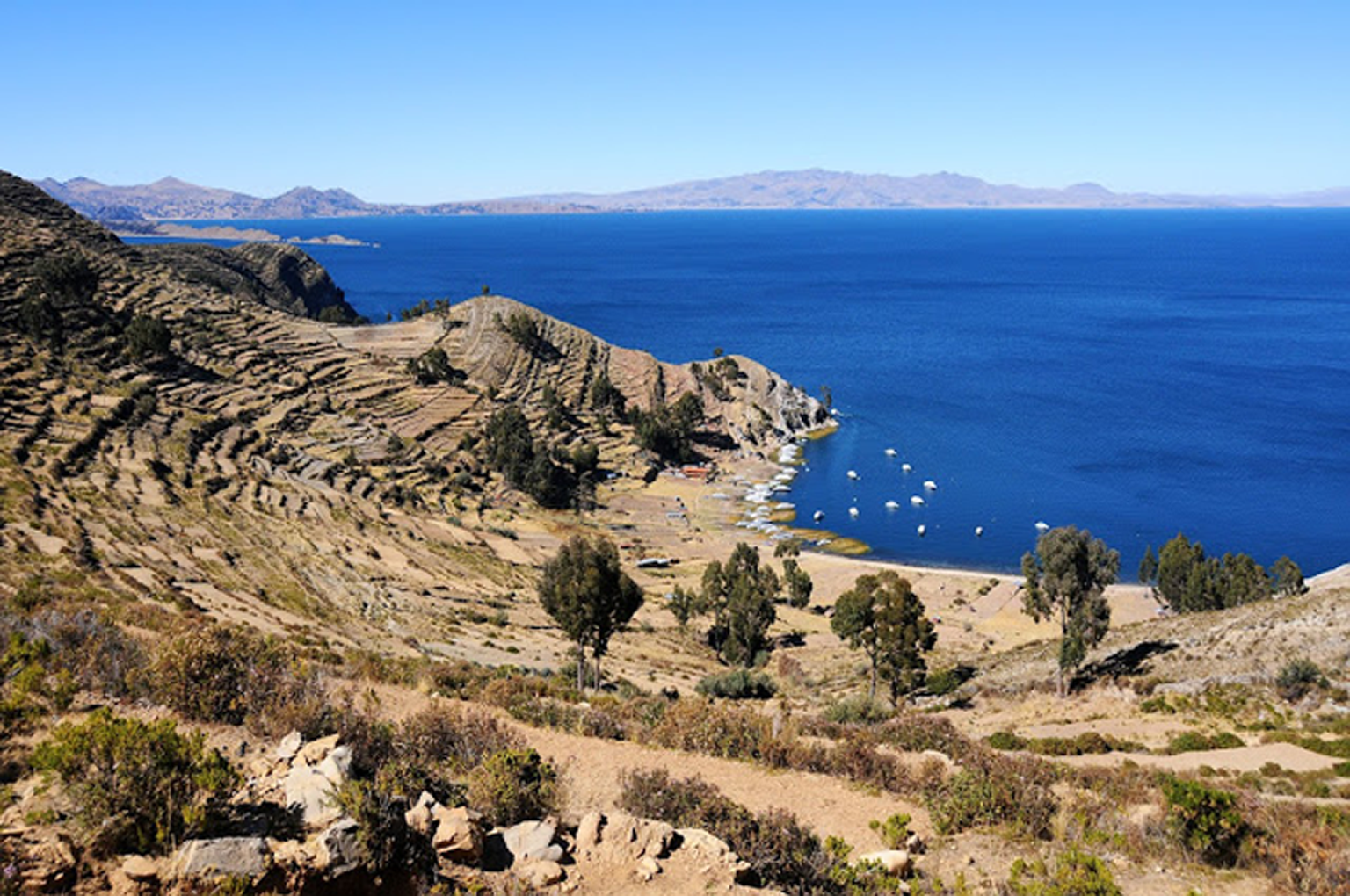- Posted by:
- anjci
- Under:
- Eurovision
Last Saturday, nearly 200 million viewers around the world gathered to watch the Eurovision Song Contest – arguably the most addictive music competition in Europe’s history.
The 64th Eurovision Song Contest was held in Israel following the country’s victory last year with the explosive (if somewhat irritating) ‘Toy’ performed by Netta, a local rising star. It was Israel’s fourth win and the third time the country hosted the famous event.
In case you are wondering how Israel came about to be considered a part of an event with ‘Euro’ in it, the answer is simple: the country is an active member of the European Broadcasting Union (EBU), the sole qualification criterion for Eurovision. And Israel surely isn’t the most exotic act to appear regularly on the stage: the contest has truly taken on an international reach in the past decade, with countries as far east as Azerbaijan and even Australia taking part.
Widely tipped to win, the Netherlands’ Duncan Laurence did not hesitate to take the trophy home with his subdued ‘Arcade’, the country’s first victory since 1975. This came despite the artist failing to win either the jury vote or the televote: every participants’ final score in Eurovision is comprised 50-50 of votes from an independent jury of, usually, random citizens and the public vote.
Norway stole the hearts of the public with its catchy ‘Spirit in the Sky’ performed by KEiiNO, receiving an impressive 291 points from the televote. The trio famously featured traditional Sami ‘joik’ chanting in their performance but failed to impress the jury, finishing fifth overall – still Norway’s best result since 2013. KEiiNO reportedly experienced technical difficulties during the dress rehearsal in the run-up to the Grand Final, the event during which the jury votes are cast (fun fact: it isn’t on the big night itself) but was not allowed a rerun.
Sweden’s John Lundvik narrowly won the jury vote with ‘Too Late for Love’ but had to face bitter disappointment at the end of the show as the presenters dragged out the announcement of the televote. Incidentally, the singer also co-wrote the UK’s entry, but could hardly have been proud of that: as Eurovision tradition now dictates, the UK finished last. John was at least spared the ignominy of receiving ’null points’ for his creative effort as Germany kindly spared the UK’s blushes by failing even more spectacularly in the public vote.
IMPECCABLE HOSTING BY ISRAEL AMID CONTROVERSY
Overall, Israel did an excellent job. The inclusion of four hosts, something I was initially sceptical about, was choreographed to perfection as the presenters – split equally by gender and inclusively featuring Assi Azar, Israel’s gay icon – waltzed effortlessly across the venue in various configurations. The masterful montage of clips from previous years’ contests presented during both semi-finals was the best interval act I have ever seen at Eurovision. And that wasn’t all: the organisers of this year’s Grand Final came up with the brilliant idea to have past contests’ winners and runners-up perform each other’s songs, reuniting the audience with legendary Eurovision acts of Conchita Wurst, Måns Zelmerlöw, Eleni Foureira and Verka Serduchka. And, while the presenters’ jokes fell flat on more than one occasion, it definitely wasn’t the first time this happened at Eurovision.
But the show didn’t come without controversy. In the run-up to the Grand Final, a number of international protest groups urged viewers and participants to boycott the event on political grounds, while several religious groups took to the streets of Tel Aviv to voice disagreement with the big night coinciding with the Jewish Sabbath. This did little to disrupt the contest, with not one country choosing to withdraw.
It was perhaps for that reason that Israel visibly threw every effort to present the country in a positive way. The country clips – short videos filmed in picturesque locations around Israel and played before each country’s performance – had obviously been perfected to showcase the country in front of the international audience in the best light imaginable. This certainly worked: all controversy aside, it has been a while since I saw a better collection of country clips at Eurovision.
FROM BDSM TO STRUGGLING MADONNA
An interesting message transpired from this year’s song titles. While Denmark claimed that ‘Love is Forever’, Sweden confusingly tried to convince us it was ‘Too Late for Love’, not long before Iceland did not take any prisoners with its categorical ‘Hate Will Prevail’. Iceland’s self-proclaimed techno-dystopian art collective Hatari was undoubtedly the most talked-about act of the contest: clashing most decidedly with the show’s usual happy-clappy line-up, the band roared on about hate prevailing and Europe’s heart getting impaled while clad in BDSM-inspired leather belts and metal spikes. It all culminated with band members provocatively unveiling Palestine banners – to overwhelming booing by the audience – when Iceland’s points were being announced. According to the Eurovision rules, no political gestures are permitted during the show, and the organisers are currently deciding on a suitable punishment for the rogue group of ‘haters’.
As expected, Australia’s performance didn’t pass unnoticed. Classically trained singer Kate Miller-Heidke delivered her operatic act while swaying precariously from side to side on one end of a long bendy pole, her distinct headdress earning her the nickname of a ‘Statue of Liberty on a stick’. The singer’s voice also bore an uncanny resemblance to that of her namesake Kate Bush, inviting an irresistible stream of ‘Wuthering Heights’ comparisons. However, even this spectacular staging failed to sway (pun intended) the viewers’ sympathies, and Australia finished ninth.
The night also famously featured the Queen of Pop (flop?), Madonna herself. Having signed the contract mere days before the Grand Final after long months of speculation, Madonna somewhat marred her performance when she found herself unable to hit most of her notes during both the old ‘Like a Prayer’ masterpiece and the somewhat downbeat ’Future’ that followed. Despite the overwhelming hype before the contest, it was one of those rare occasions when an interval act – a high-calibre star, no less – turned out even more disappointing than the actual participants.
RANDOM NOMINATIONS IN RANDOM CATEGORIES
This year’s Eurovision saw no shortage of the kitsch parade the show typically is. Onto my favourite part – the nominations across random categories – and the worst outfit award unanimously goes to Katerine Duska of Greece whose entire on-stage team looked to have emerged from a failed costume school project, including two sword-yielding ballet dancers wearing what I can only conclude were nappies beneath their tights. The audience were suitably unimpressed, landing the song sixth from the bottom.
Continuing with the scariest act of the night, I am split between Zala Kralj & Gašper Šantl of Slovenia and Serhat of San Marino. While the Slovenian duo decided to base their 3-minute sleepy act on staring rather creepily at each other, Serhat – a Turkish national having already randomly represented San Marino in 2016 – would probably get himself swiftly arrested if caught on another end of a telephone line sounding like that. ‘Say Na Na Na’ if he ever does call: one dreads to think how it must have felt being one of his patients when he was still a dentist.
Onto brighter things, and my best impersonation award goes to Tamta – a well-established singer in the Greek-speaking world – representing Cyprus, who confidently paraded what looked like very few clothes and a classic Madonna look. No wonder the latter had to resort to what appeared to be an outfit comprised of the leftovers from the Hatari dressing room, logically featuring an eye patch. During Madonna’s interview in the Green Room, Tamta could be seen eyeing the star with utmost satisfaction: we all know she wasn’t planning to return the ensemble anytime soon.
It was a tough competition this year, but Italy’s Mahmood receives my creative poetry award for successfully rhyming ‘Ramadan’ with ‘Jackie Chan’ – admittedly not your usual combination. Written about the singer’s difficult relationship with his Egyptian father, the song ‘Soldi’ won Italy’s 2019 Sanremo festival – typically viewed as the country’s national selection for Eurovision – and came second in the Grand Final, Italy’s best result since 2011.
Continuing with the lyrics theme, I had to cringe when Sweden’s John Lundvik repeatedly failed to apply correct grammar in his ‘Too Late for Love’, confidently vouching he would ‘lit your world with just one spark’. If that wasn’t enough, the singer refused to acknowledge his mistake, bluffing it was a kind of ‘slang’. I would awarded the grammar nerd trophy to you in a heartbeat, John. See what I mean?
Delightfully, many other finalists are worth a mention. Czechia’s boy band Lake Malawi (yes, really) sounded like poor man’s Spandau Ballet while looking suspiciously like the Wiggles, Australia’s legendary children’s music quartet. Russia’s Sergey Lazarev – the very Sergey who famously won the public vote at 2016 Eurovision – solved the backing dancer shortage by featuring multiple images of himself on the stage as mirror reflections, as well as spending a questionable amount of time in what looked like a shower cabin. Denmark’s Leonora – a professional figure skater when not performing at Eurovision – arguably pulled the most effort with stage props, including a ladder and a giant chair which the singer put to good use in the best Humpty Dumpty manner. Unfortunately, the song itself was unremarkable, finishing 12th.
And, in the words of the timeless Verka Serduchka, it was all ‘okay, happy end’ in the end. Congratulations to the Netherlands!












Comments